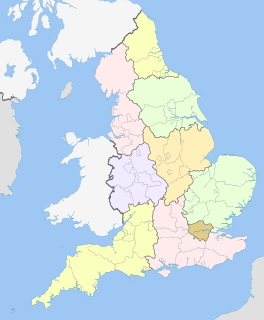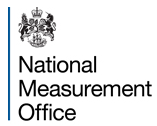
The secretary of state for education, also referred to as the education secretary, is a secretary of state in the Government of the United Kingdom, responsible for the work of the Department for Education. The incumbent is a member of the Cabinet of the United Kingdom, 14th in the ministerial ranking.

The Department of Trade and Industry (DTI) was a United Kingdom government department formed on 19 October 1970. It was replaced with the creation of the Department for Business, Enterprise and Regulatory Reform and the Department for Innovation, Universities and Skills on 28 June 2007.

The Department for Digital, Culture, Media and Sport (DCMS) is a department of the United Kingdom government, with responsibility for culture and sport in England, the building of a digital economy, and some aspects of the media throughout the UK, such as broadcasting and Internet.

The parliamentary committees are sub-legislative organizations each consisting of small number of Members of Parliament from the House of Commons, or peers from the House of Lords, or a mix of both appointed to deal with particular areas or issues; most are made up of members of the Commons. The majority of parliamentary committees are select committees. The remit of these committees vary depending on whether they are committees of the House of Commons or the House of Lords.
Forfás was the national policy advisory board for enterprise, trade, science, technology and innovation in Ireland. The agency was established in January 1994 under the Industrial Development Act, 1993 and was run by a board appointed by the Minister for Enterprise, Trade and Employment, to whom the agency was responsible. Forfás was dissolved on 1 August 2014 and its functions were transferred to the Department of Enterprise, Trade and Employment, Enterprise Ireland, the Industrial Development Authority and the Health and Safety Authority.

In the United Kingdom, regional development agencies (RDAs) were nine non-departmental public bodies established for the purpose of development, primarily economic, of England's Government Office regions between 1998 and 2010. There was one RDA for each of the NUTS level 1 regions of England. Similar activities were carried out in Wales by the Welsh Government Department of Economy and Transport, in Northern Ireland by the Department of Enterprise, Trade and Investment and in Scotland by Scottish Enterprise and Highlands and Islands Enterprise.

The Department for Levelling Up, Housing and Communities (DLUHC), formerly the Ministry for Housing, Communities and Local Government (MHCLG), is the UK Government department for housing, communities and local government in England. It was established in May 2006 and is the successor to the Office of the Deputy Prime Minister, established in 2001. The department shares its headquarters building, at 2 Marsham Street in London, with the Home Office. From summer 2021, 500 members of staff and civil servants will start to relocate to Wolverhampton as the department prepares to be first UK government department to have a headquarters based outside of London. It is hoped the move will be completed by 2025. It was renamed to add Housing to its title and changed to a ministry in January 2018, and later reverted to a government department in the 2021 reshuffle.

The National Measurement and Regulation Office (NMRO) was an executive agency of the UK Government's Department for Business, Innovation and Skills (BIS). Its function were to provide a measurement infrastructure which supports innovation, facilitates fair competition, promotes international trade and protects consumers and the environment.

Research Councils UK, sometimes known as RCUK, was a non-departmental public body which coordinated science policy in the United Kingdom from 2002 to 2018. It was an umbrella organisation that coordinated the seven separate research councils that were responsible for funding and coordinating academic research for the arts, humanities, science and engineering. In 2018 Research Councils transitioned into UK Research and Innovation (UKRI).

The Department for Innovation, Universities and Skills (DIUS) was a UK government department created on 28 June 2007 to take over some of the functions of the Department of Education and Skills and of the Department of Trade and Industry. Its head office was based at Kingsgate House, 66-74 Victoria Street, London SW1, which has now been demolished. In June 2009 it was merged into the newly formed Department for Business, Innovation and Skills. It was responsible for adult learning, some parts of further education, higher education, skills, science and innovation.
Innovate UK is the United Kingdom's innovation agency, which provides money and support to organisations to make new products and services. It is a non-departmental public body operating at arm's length from the Government as part of the United Kingdom Research and Innovation organisation.

The Department for Business, Innovation and Skills (BIS) was a ministerial department of the United Kingdom Government created on 5 June 2009 by the merger of the Department for Innovation, Universities and Skills (DIUS) and the Department for Business, Enterprise and Regulatory Reform (BERR). It was disbanded on the creation of the Department for Business, Energy and Industrial Strategy on 14 July 2016.

The Department for Education (DFE) is the UK government department responsible for child protection, education, apprenticeships and wider skills in England.
Following the 2010 United Kingdom general election, the UK Government announced plans to curb public spending through the abolition of a large number of quasi-autonomous non-governmental organisations (quangos). On 23 May 2010, Chancellor of the Exchequer George Osborne unveiled a £500million plan to reduce the budget deficit by abolishing or merging many quangos. This was styled in the national press as a "bonfire of the quangos", making reference to Girolamo Savonarola's religiously inspired Bonfire of the Vanities. The cuts and closures received criticism in some quarters, but was generally welcomed by the business community.

The Competition and Markets Authority (CMA) is the competition regulator in United Kingdom. It is a non-ministerial government department in the United Kingdom, responsible for strengthening business competition and preventing and reducing anti-competitive activities. The CMA launched in shadow form on 1 October 2013 and began operating fully on 1 April 2014, when it assumed many of the functions of the previously existing Competition Commission and Office of Fair Trading, which were abolished. Currently, they have around 600 employees.
The Small Business Commissioner was established by the UK government in the Enterprise Act of 2016. Secretary of State for Business Greg Clark announced the appointment of Paul Uppal to the newly established post of Small Business Commissioner on 2 October 2017. On 20 December 2017, working with digital agency "dxw digital", an advice and complaints service was launched to help small businesses get paid on time and ensure fair payment practices.

The Department for Business, Energy and Industrial Strategy (BEIS) is a department of the government of the United Kingdom. The department was formed during a machinery of government change on 14 July 2016, following Theresa May's appointment as Prime Minister, through a merger between the Department for Business, Innovation and Skills (BIS) and the Department of Energy and Climate Change (DECC).

The secretary of state for international trade, also referred to as the international trade secretary, is a secretary of state in the Government of the United Kingdom, with overall responsibility for the business of the Department for International Trade and UK Export Finance. The incumbent is a member of the Cabinet of the United Kingdom, 12th in the ministerial ranking. Since the office's inception, the incumbent has concurrently been appointed President of the Board of Trade.

The secretary of state for business, energy and industrial strategy, also referred to as the business secretary, is a secretary of state in the Government of the United Kingdom, with overall responsibility for the Department for Business, Energy and Industrial Strategy. The incumbent is a member of the Cabinet of the United Kingdom, tenth in the ministerial ranking.










